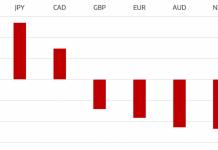Research published by the FCA estimates that 2.3 million adults now hold cryptoassets (up from 1.9 million last year). 78% of adults have now heard of cryptoassets, up from 73% in a year.

Change In Common Attitudes Towards Cryptocurrencies
The consumer research shows that as holding cryptoassets has become more common attitudes to them have changed. 38% of crypto users regard them as a gamble (down from 47% last year), while increasing numbers see them as either a complement or alternative to mainstream investments.
By contrast, the level of overall understanding of cryptocurrencies is declining, suggesting that some people who have heard of crypto may not fully understand, with only 71% correctly identified the definition of cryptocurrency from a list of statements.
Enthusiasm for cryptoassets is growing with over half of crypto users saying they have had a positive experience so far and are likely to buy more (rising from 41% to 53%). Fewer people also regret having bought cryptocurrencies, down from 15% to 11%.
1 in 10 who had heard of cryptocurrency said they are aware of consumer warnings on the FCA website. Of these, 43% said they were discouraged from buying crypto. Most consumers recognise that crypto investments are not protected, although 12% of crypto users believe otherwise.
Consumer Warnings From FCA
Sheldon Mills, FCA’s Executive Director, Consumers and Competition said: ‘The research highlights increased interest in cryptoassets among UK customers. The market has continued to grow, and some investors have benefitted as prices have risen. However it is important for customers to understand that because these products are largely unregulated that if something goes wrong they are unlikely to have access to the FSCS or the Financial Ombudsman Service. If consumers invest in these types of products, they should be prepared to lose all their money.’
The research is the FCA’s fourth consumer research publication on cryptoassets ownership. It is part of the FCA’s strategy to develop its thinking on the potential harms and benefits to consumers from cryptoassets and help better understand consumers’ attitudes and patterns of use.
Commenting on this findings, Dan Moczulski, Regional Manager UK and Head of Business Development at eToro, said:
“With more people aware of the potential investment opportunities in cryptoassets, the FCA’s findings also indicate that the growth in interest has simultaneously diminished the average level of understanding. It is critical that those who are interested in the market do their research and comprehend what it is they are backing. Investors should also only hold crypto as one component of a wider diversified investment portfolio.
“Major cryptoassets such as bitcoin have seen exponential growth this year, and also significant pull backs. For those investors who are committed to the proposition and are investing for the long-term this is not an issue, as the base case remains the same. However, anyone buying on sheer momentum needs to think again, do their research and decide if they believe in the reasoning behind the investment, not just the price movement.”
During that period the FCA issued further consumer warnings, stating that investing in cryptoassets is high risk and that investors should be prepared to lose all their money.
The FCA said it will continue working closely with HM Treasury and other regulators, including through the UK Cryptoasset Taskforce.
Tradersdna is a leading digital and social media platform for traders and investors. Tradersdna offers premiere resources for trading and investing education, digital resources for personal finance, market analysis and free trading guides. More about TradersDNA Features: What Does It Take to Become an Aggressive Trader? | Everything You Need to Know About White Label Trading Software | Advantages of Automated Forex Trading












































